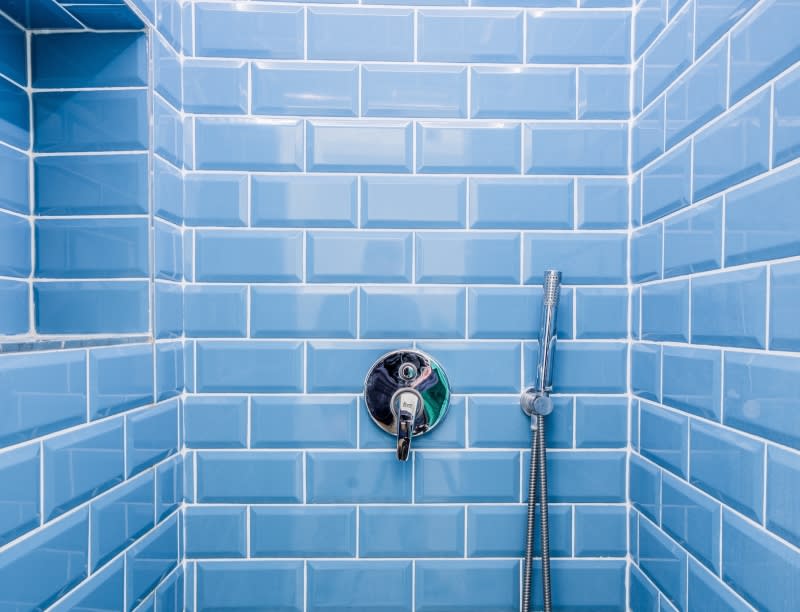Here's What You Should Know About Men's Hair Conditioners

So much is written about shampoo, but a good conditioner is the key to healthy, better-looking hair. While shampoo rids your scalp of any dirt or grime, conditioner is responsible for moisturized, shiny, smooth hair. The right conditioner can even stop hair loss by decreasing breakage and strengthening your hair.
With so many options out there, it can feel overwhelming to choose the right conditioner. That’s why we wrote this guide to make it a little bit easier.
The Different Types of Hair
Choosing the best conditioner for your specific needs begins with knowing what type of hair you have. For example, leave-in conditioner is most helpful for those with curly or coily hair because these hair types struggle with dryness.
Your hair type determines two major things:
- How oily or dry your hair gets
- Specific ingredients and formulas used in conditioners that you should seek out or avoid for optimal hair health
No matter what your hair type is, there’s a conditioner formulated for your specific needs. Let’s break it down.
Straight
Straight hair is sleek, tends to lay flat, and is oily.
Wavy
Neither straight nor curly, wavy hair is in the middle. Wavy hair can be thick or thin. The thicker it is, the more prone it is to frizz.
Curly
Curly hair is in the middle of wavy and coily hair. The tighter the curls, the more coarse the hair tends to be.
Coily
Coily hair is dry and spongy in texture and forms tight curls in a zig-zag pattern.
Types of Conditioner
Now that we’ve covered that, let’s talk about your options:
Thickening conditioner
Thickening conditioner (sometimes called “volumizing conditioner”) uses ingredients like protein and collagen to make hair look as full and healthy as possible. This type of conditioner works for all hair types, but obviously is best for guys whose hair is thin or thinning. Biotin, caffeine, green tea, and saw palmetto are all good ingredients to look out for in a thickening conditioner.
Tip: Expert-formulated Keeps Thickening Conditioner maximizes thinning hair and protects against future hair loss. Get started here.
Deep conditioner
Deep conditioner has a thicker consistency than regular conditioner. It’s best suited for curly, coily, or color-treated hair because these hair types tend to be dry or damaged.
Tip: You should only use deep conditioner a couple of times a month. For example, you can use your regular conditioner for three weeks and then deep condition your hair the last week of the month.
Moisturizing conditioner
Moisturizing conditioner contains more oils to soften and smooth the hair. It should be used for moderately dry, curly, or thick hair as these hair types need extra moisture. Avoid moisturizing conditioner if you have oily hair.
Tip: Make sure to massage moisturizing conditioner all the way to the tips of your hair to help with split ends and breakage.
Protein Conditioner
Protein conditioner contains keratin, the protein that makes up your hair and prevents breakage. It helps thicken fine, straight hair and provides necessary nourishment to dry, wavy, or curly hair.
Tip: Only use protein conditioner when your hair gets weak. Protein conditioner is heavy, similar to deep conditioning. Ideally, it should be used once or twice a month.
Cream Rinse Conditioner
Cream rinse conditioner has a thinner consistency than regular conditioner. It’s used as a quick detangler for fine to medium hair that is straight or wavy.
Tip: Avoid using cream rinse conditioner on coily or curly hair because it isn’t thick enough to give those hair types the moisture they need.
Instant Conditioner
Instant conditioner (also known as rinse-out conditioner) usually comes as a cream or spray to be used post-shower. It leaves trace amounts of key ingredients on the hair shaft. It’s best suited for dry, curly, or coily hair because these hair types are prone to frizz and split ends.
Tip: Instant conditioner is a light product best suited for those with fine hair.
Leave-in Conditioner
Leave-in conditioner detangles strands, smooths out frizz, and keeps flyaways at bay. Leave-in conditioner works best with curly or coily hair because this type of hair tends to be more dry. Now, if you have naturally oily hair, leave-in conditioner will be too thick for your hair and may make it even more oily.
Tip: Apply to wet washed hair after a shower. Make sure you don’t rinse it out in the shower!
Let’s do a quick recap.
- Straight or fine hair: Use cream rinse or instant conditioner to quickly nourish hair without weighing it down.
- Wavy, curly, or coily hair: Use leave-in conditioner, deep conditioner, or moisturizing conditioner to treat dryness. Protein conditioner can help build strength.
Remember, the type of hair you have determines the type of conditioner that will best suit your hair. To nourish your hair properly, you need to use a conditioner that’s formulated for your hair type.
Oh! And while you’re writing your shopping list, check out our guide to the 11 types of shampoo.
The information provided in this article is not a substitute for professional medical advice, diagnosis, or treatment. You should not rely upon the content provided in this article for specific medical advice. If you have any questions or concerns, please talk to your doctor.
Photo by Bence Balla-Schottner on Unsplash